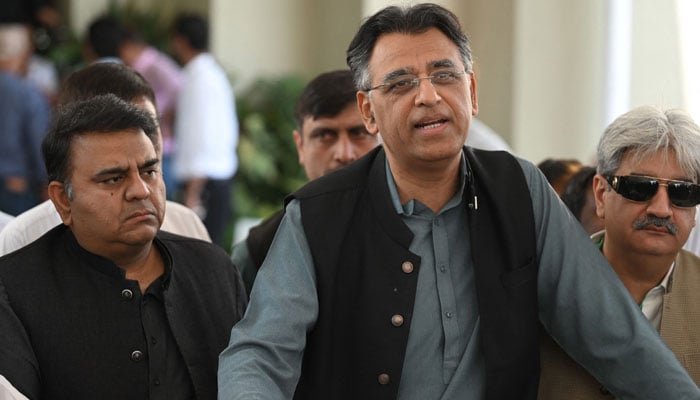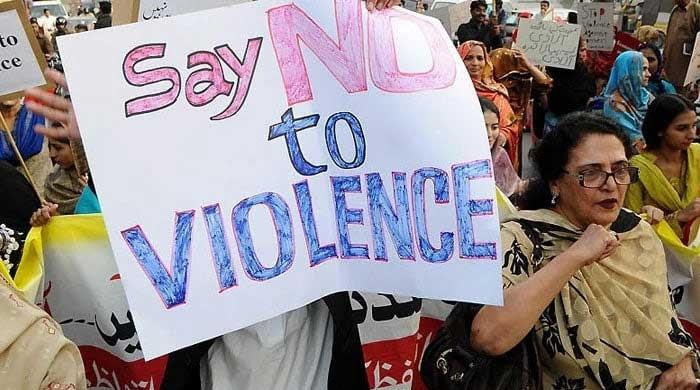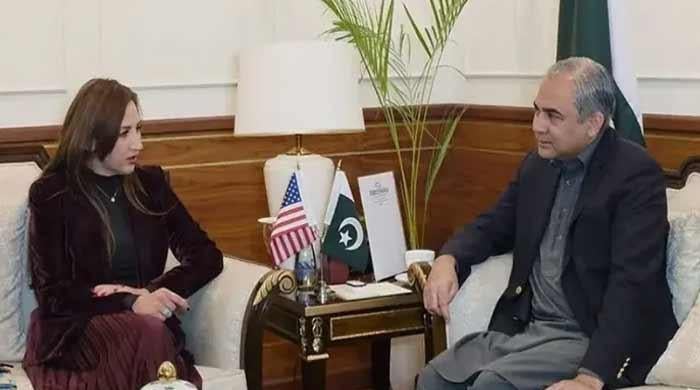Asad Umar takes U-turn over ECP apology in contempt case
"I stand by my words about Election Commission that it is not acting as an impartial constitutional body," says Asad Umar
February 16, 2023

- An amended reply to ECP will be filed, says PTI leader.
- Instructs legal team to omit ambiguous paragraph from statement.
- Asad Umar is facing contempt charges.
ISLAMABAD: Just a day after submitting an apology to the Election Commission of Pakistan (ECP) over his critical remarks about partiality, Pakistan Tehreek-e-Insaf (PTI) Secretary-General Asad Umar on Wednesday withdrew his statement, saying "an amended reply to the show-cause notice issued to him will be filed," The News reported on Thursday.
Asad Umar said that he was consistent in his remarks about the biased role of the commission, which were substantiated with strong arguments, according to a statement issued by the PTI Central Media Department.
He instructed the legal team to file an amended reply, omitting the "paragraph creating ambiguity", the statement quoted him as saying.
The senior PTI leader maintained that when he asked his lawyers about the matter, they explained to him that legally, it was not an apology.
However, Umar made it clear, "Whatever legal language had been used (by my lawyers in the reply), I stand by my words about the ECP that it is clearly a party and not acting as an impartial constitutional body".
A day earlier, the PTI stalwart submitted an apology statement to the electoral body which reads, "If this Commission feels that the statements made are in the nature that amounts to contempt, the Applicant/Alleged Contemner places himself at the mercy of the Commission, and states that he is sorry for the statements made and that he may be excused and the proceedings dropped".
He contended to have had earlier stated with arguments that the ECP's decision in the foreign funding case was contrary to the facts and against the law, adding it had no mandate to try someone in contempt.
Then, he pointed out that Article 204 of the Constitution confers the powers only to the Supreme Court (SC) and the high courts. He also noted the SC, in the Hanif Abbasi case, had made it clear that the ECP was not a court.











